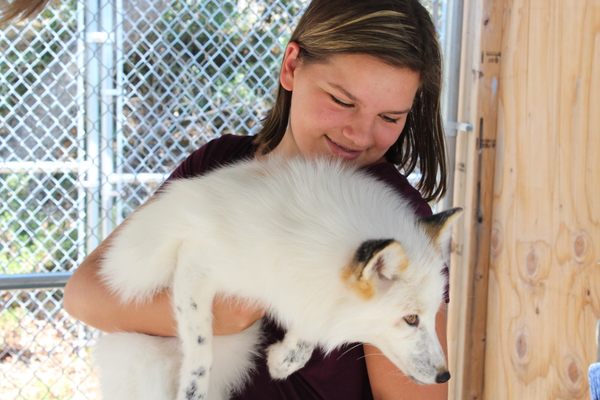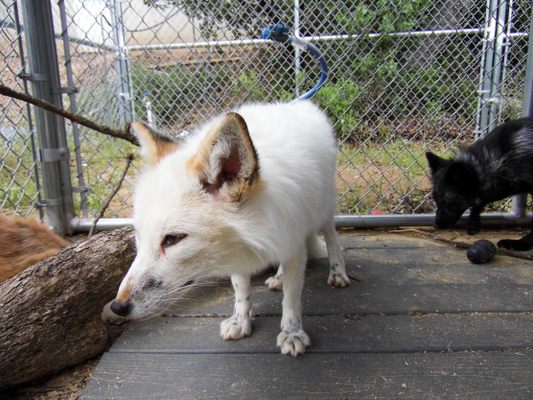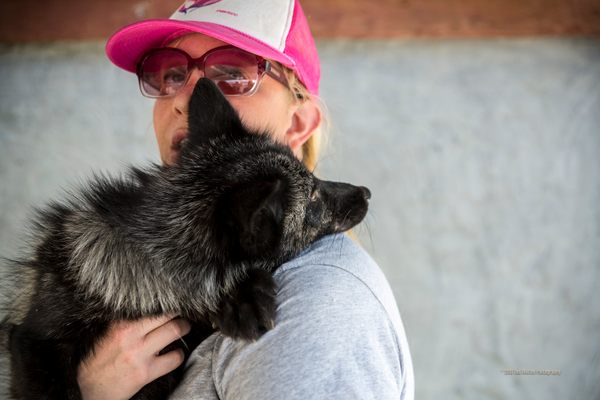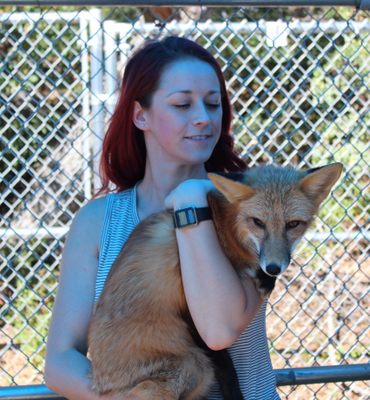About
Located in Santa Ysabel in southern California, the Judith A. Bassett Canid Education and Conservation Center (or the JABCECC) started just a little over two years ago. Home to domesticated Russian foxes, affectionately known as Siberian Cupcakes, the center focuses on the rescue and conservation canids, including primitive dogs like Carolina Dogs and New Guinea Singing Dogs.
The center also offers a series of on-site and off-site interactive educational events with the public, so visitors can spend time getting better acquainted with these rare and unique animals. Programs include everything from wine tastings and hiking with the canids, to children’s story time sessions, as well as private events, parties, and educational seminars. “Our mission is to seek out novel ways to educate about, and advocate for, the various Canids found around the world,” says Dave Bassett from the JABCECC. “We are not open to the public on a regular schedule, but do offer various programs at the center or at other locations by appointment,” he continues.
The domesticated Russian red foxes, also known as Vulpes vulpes, were bred for tameness at the Institute of Cytology and Genetics in Novosibirsk Russia for over 50 years. According to their website, in 1959, Soviet geneticist Dr. Dmitri Belyaev began the program, hoping to better understand the process of domestication in canids. Select foxes from the program were recently flown to the United States to continue research efforts, as well as to allow the public to catch a glimpse of these animals.
Today, at the JABCECC, visitors can book private fox encounters starting at $25 USD. The price includes an hour with the Belyaev Russian domesticated foxes in an intimate setting. Private events for two people are also offered ($150 for a couple), with an additional price of $25 per person after that. For larger groups, including schools, non-profit organizations, and corporations, they also offer both onsite and off-site events ranging from 1 to 3 hours – meaning they’ll take the foxes to you.
In addition to the public programs, the center also works with various researchers who are studying domestication and how it can actually help heal humans, particularly as it relates to those with social bonding disorders. Using controlled studies, the JABCECC strives to bridge the gap between candid conservation efforts and academia to offer novel discoveries surrounding domestication. They partner with rescue shelters, animal-assisted therapy organizations, canine shelters, as well as experts in genetics to study the symbiotic, healing benefits of these interactions.
Related Tags
Know Before You Go
The JABCECC doesn't allow public drop-ins, so be sure to schedule your visit ahead of time.
Community Contributors
Added By
Published
January 31, 2019
























































